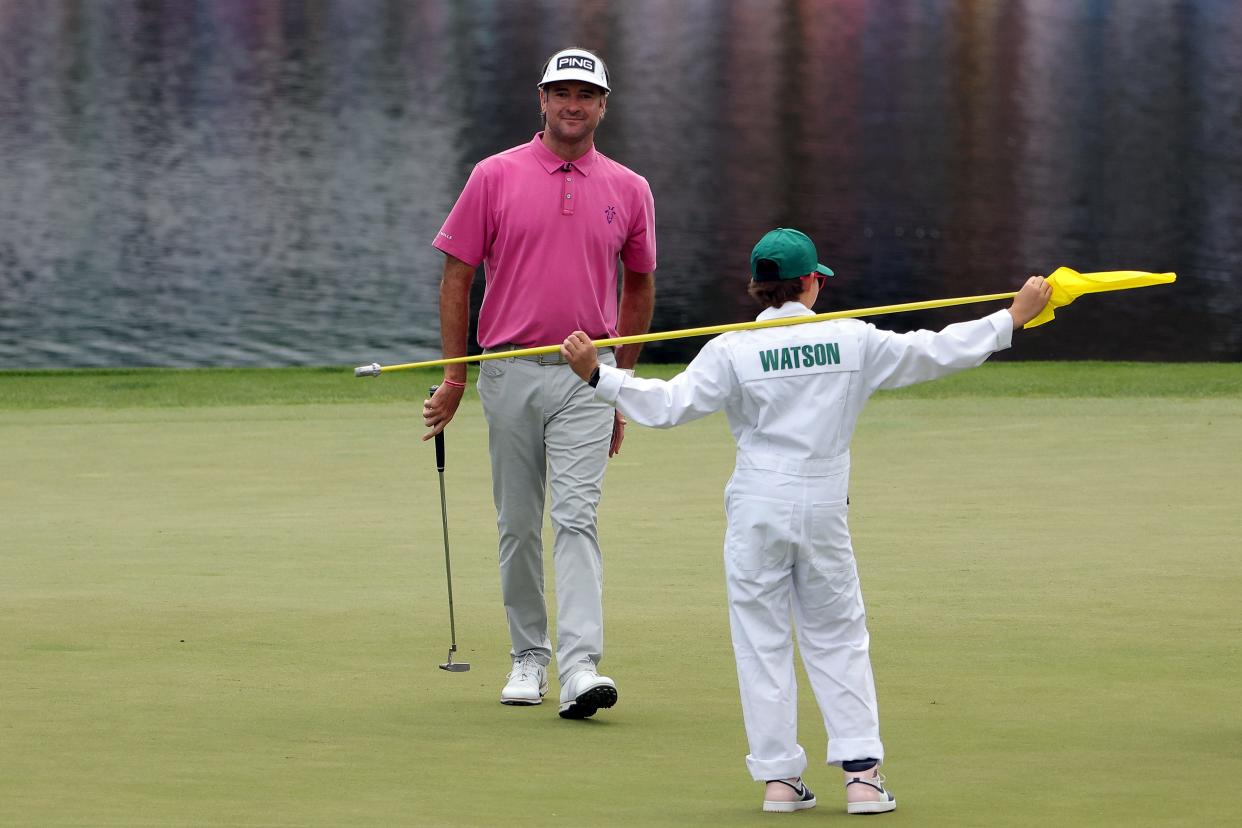Bubba Watson, Matthew Wolff show value of mental health concerns in sports and life
Most fans focus on the glory of sports – the feats on the gridiron, miracle shots from the rough, impossibly arced swishes from way past the 3-point line. But a small but increasing number of seemingly superhuman athletes have come forward in recent years to direct attention to a more human side of the games they play, the challenges they've faced to their mental health. They're doing a great service by opening the issue to public view.
Most recently, pro golfers Matthew Wolff and Bubba Watson brought this issue to light, Wolff by openly discussing the progress of his interior battles, and Watson, by extending a hand to his younger colleague, as one who has been there and learned to put the game in the context of a broader life.
Brooks Koepka's comments about LIV teammate Matthew Wolff becoming insensitive | D'Angelo
Wolff, a Jupiter resident who turned 25 this week, is one of the world's best golfers. But as Palm Beach Post golf writer Tom D'Angelo reported, Wolff has struggled for years. At one point it was hard just getting out of bed. He feared going to tournaments, he said, because he didn't want to "screw up in front of everyone."

When Wolff joined a LIV Golf team, he found himself shunned by captain Brooks Koepka, another Jupiter resident, who spoke to the media about having lost patience. He questioned Wolff's work ethic and attitude, saying he has a lot of talent but that "talent's wasted."
Watson, 45, saw something of his younger self in Wolff, though, and traded to get him on his team. Watson told Wolff, "I don't care about your golf, I care about you."
The approach has born fruit. Last week Wolff finished 3rd in the LIV Golf Miami tournament in Doral, shooting an impressive 10 under par.
It's not like Wolff's experience is an isolated incident.
UM lineman spent month in mental health rehab. Will NFL scouts penalize him for it? | Habib
As the Post's Hal Habib reported this month, University of Miami lineman Javion Cohen, awaiting being chosen for the NFL draft, freely brings up with recruiters the time he took a break for mental health rehabilitation. "I haven't had a bad day since," he said. Discussing the issue is "something that I lead with," he said. "That's who I am. I'm an advocate for mental health."
NFL players Dak Prescott and Hayden Hurst also have spoken about their challenges, Habib wrote. Swimmer Michael Phelps, holder of the record for the most Olympic gold medals (23), is among those who've battled to regain their legs and now help others by bringing the issue to the surface. Addressing high school athletes in West Palm Beach in 2019, Phelps told them, "It's OK not to be OK."
Tennis star Naomi Osaka echoed that thought, having withdrawn from a major tournament "to take care of myself mentally," she told Time in 2021. The highest paid female athlete in the world that year, she spoke of suffering extended depression and social anxiety. "We can almost universally agree that each of us is a human being and subject to feelings and emotions."
![Naomi Osaka [GREG LOVETT/palmbeachpost.com]](https://s.yimg.com/ny/api/res/1.2/V0mJjVkXdHJb1VKE8aAfoA--/YXBwaWQ9aGlnaGxhbmRlcjt3PTEyNDI7aD0xNzE4/https://media.zenfs.com/en/aol_gannett_aggregated_707/2083a2e8acca3402662d996beb5b2104)
These athletes, by going public, help others set aside the embarrassment of opening up about problems and seeking the help they need. Because, of course it's not just elite athletes who suffer, though they do experience a kind of stress the rest of us can only imagine. More importantly, it's not just athletes who have a responsibility to extend help and empathy, even when it's inconvenient. That's on all of us.
It's a cliché, perhaps, that sports is a great teaching platform for lessons about life, about poise under pressure, fair play, teamwork and the like. But these athletes who've spoken out also offer the great lesson that there's more to life than the game at hand. We should all be mindful of that.
This article originally appeared on Palm Beach Post: Watson, Wolff at Masters show value of prioritizing mental health
